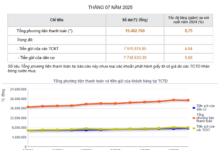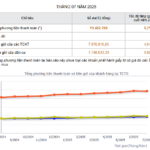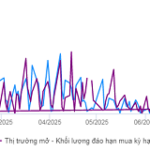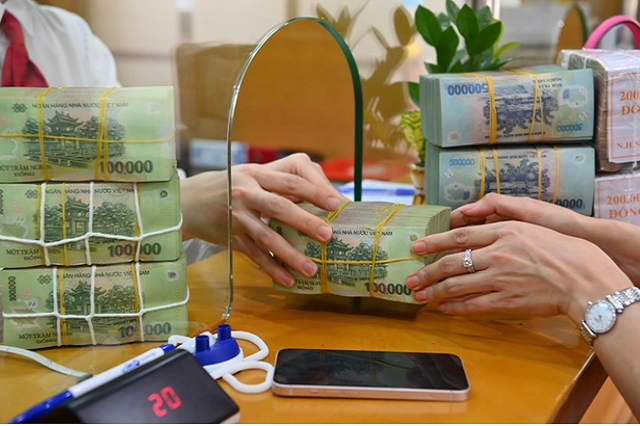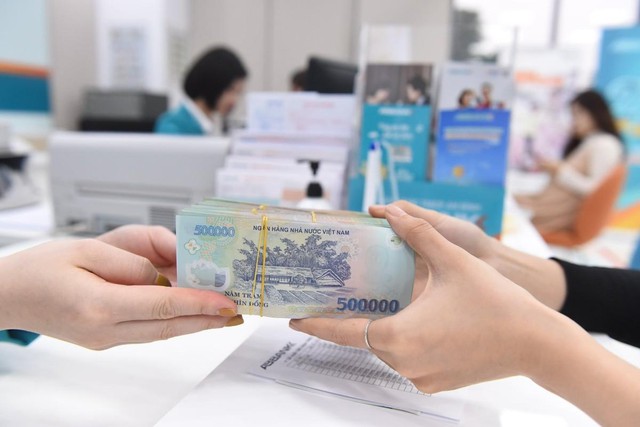
Illustration
Prime Minister Pham Minh Chinh has signed Official Letter No. 18/CD-TTg on March 5, 2024 regarding the management of credit growth in 2024.
In the official letter, Prime Minister Pham Minh Chinh evaluated the production and business activities in some difficult sectors; besides, though the lending interest rates have decreased, they have not corresponded to the decrease of deposit interest rates; the credit growth in the first two months of 2024 has decreased compared to the end of 2023.
To support the production and business activities of the people and enterprises, promoting economic growth, and stabilizing the macroeconomy, Prime Minister Chinh requested the State Bank of Vietnam to direct credit institutions to publicly disclose the average lending interest rates so that people and businesses can conveniently access credit and choose banks to borrow capital.
Prior to that, the State Bank of Vietnam has issued Directive No.1 on implementing tasks in 2024, including directing credit institutions to publicly disclose and take responsibility for the average lending interest rates of each credit institution and the interest rate difference between the average deposit and lending rates on the website of each credit institution.
At the recent online conference on promoting bank credit in 2024, Mr. Pham Chi Quang, Deputy Director of the Money Policy Department, also said that the State Bank of Vietnam has sent a request to listed banks to publish the average lending interest rates on their websites, requesting banks to report on their implementation before February 23, and specify the difficulties and obstacles to be considered and resolved accordingly.
In the coming time, when synthesizing opinions from credit institutions, the State Bank of Vietnam is expected to create a website for credit institutions to submit links to publicly disclose the average lending rates linked with the website of the State Bank of Vietnam. “To avoid misunderstandings when announcing the average lending interest rates, the State Bank of Vietnam does not limit credit institutions from disclosing details of customer groups or customer classifications. These are under the jurisdiction of the credit institutions,” Mr. Pham Chi Quang said at the meeting.
Mr. Dao Minh Tu, Deputy Governor, also stated that public disclosure is the right direction by the Government’s leadership and the banking industry needs to implement it as it is a governance principle. If credit institutions do not publicly disclose the average lending interest rates, it will not only be evaluated by the State Bank of Vietnam but also by the economy and businesses. Or if banks only announce short-term average lending interest rates because they are lower, it is still unfair.
“This is the average lending interest rates, not interest rates for each individual, each business or each type, so there is nothing wrong. Therefore, when lending or mobilizing, interest rates must be disclosed. I propose that banks carry out this well. We strive for fairness and objectivity in competition, so all banks must strive. There is nothing difficult in publishing this information,” emphasized the leadership of the State Bank of Vietnam.
Also in the official letter today, the Prime Minister also requested the State Bank of Vietnam to continue directing credit institutions to reduce lending interest rates (cost reduction; administrative procedure simplification, information technology application, digital transformation, etc.);
The State Bank of Vietnam must promptly implement management measures to continue reducing lending interest rates associated with enhancing access to credit to support the people and businesses in developing production and business, ensuring sufficient credit, healthy foreign exchange, focusing on important and prioritized areas, meeting the capital needs of the economy and the safety of the credit system.
Strengthen inspection, examination, control, and closely monitor the credit granting of credit institutions, ensuring credit flows, including foreign exchange credits focused on priority areas and growth drivers of the economy (consumption, export, investment), and serving the needs of development in production and business of safe, healthy, and sustainable enterprises with insufficient capital. Prohibit lending in violation of the law, lending to leaders, and relevant persons in credit institutions, ecosystem enterprises, shadow enterprises…






